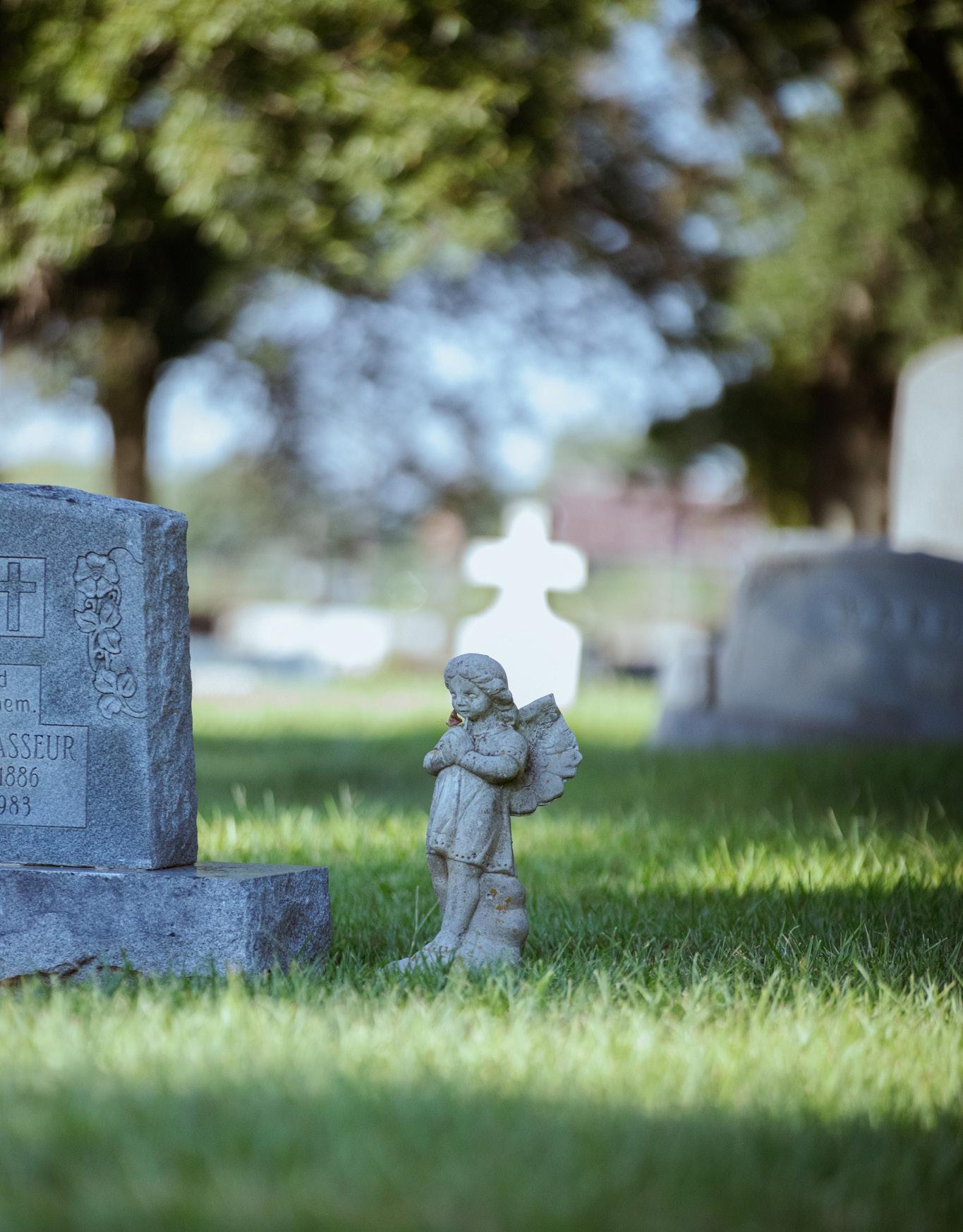

CATHOLIC CONNECTION
CATHOLIC CONNECTION
PUBLISHER
Bishop Francis I. Malone
EDITOR
Sophia Romanski
EDITORIAL BOARD

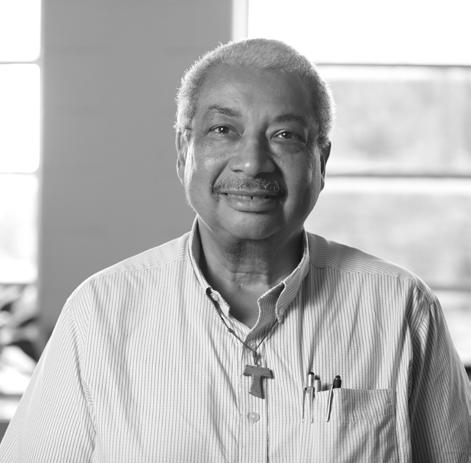



CONTRIBUTORS
Karla Alvarez
Dr. S. Germain Cassiere
Karen Dill
Tristan Frisk
Sr. Elinor Gardner
Jamie Humphrey
Sharon McCabe
Shelby McCarty
Lucy Medvec
Jennifer Nix
Noemi Saybe
T.C. Veit
Mike Van Vranken
NOVEMBER 2025
Volume 35 Number 4 PREPARING OUR SOULS
P ope Leo XIV's Prayer Intention For The Month of November
FOR THE PREVENTION OF SUICIDE Let us pray that those who are struggling with suicidal thoughts might find the support, care, and love they need in their community, and be open to the beauty of life.
Cover photo: A moth rests on the prayerfully folded hands of a small angel statue beside a grave in St. Joseph Cemetery, Shreveport, LA.
SUBSCRIPTIONS & ADDRESS CHANGES Blanca Vice bvice@dioshpt.org 318-868-4441
SUBMISSIONS
Sophia Romanski sromanski@dioshpt.org
The Catholic Connection is a member of the Catholic Media Association
The Diocese of Shreveport complies with Virtus' Protecting God's Children program (www.virtus.org). Online sessions are available. To report child sexual abuse by a cleric or church worker in the Diocese of Shreveport, call your loval law enforcement agency and Mary Arcement Alexander, Diocesan Victim Assistance Coordinator at 318-588-2120. Thank you for helping to keep our children and vulnerable adults safe.
The Catholic Connection is funded in part by a grant from the Catholic Home Missions Appeal and donations to the Catholic Service Appeal.
MISSION STATEMENT
The Catholic Connection is a monthly publication funded by your Catholic Service Appeal, mailed to every known Catholic household in the Diocese of Shreveport. Our mission is to advance knowledge and understanding of our Catholic faith among the faithful. We seek to foster the application of Christ's teachings and our Church's mission in our daily lives and to encourage our sense of Catholic identity within our family, parish, and faith community.
November Second Collections
NOVEMBER 8 & 9 COLLECTION FOR THE ARCHDIOCESE FOR MILITARY SERVICES which provides spiritual support and pastoral care to Catholic Service members, their families, and veterans across the globe.
NOVEMBER 15 & 16 CATHOLIC CAMPAIGN FOR HUMAN DEVELOPMENT The national antipoverty program of the U.S. Catholic Bishops, working to carry out the mission of Jesus Christ.
Photo by Sophia Romanski
Very Rev. Msgr. Matthew T. Long
Rev. Kevin Mues
Deacon Charles Thomas, OFS
Rosalba Quiroz
Karla Alvarez
Mass;
Welcoming
& Solemnities Priest(s) in the Diocese of Shreveport to pray for daily
SUGGESTED PRAYER FOR OUR PRIESTS:
Gracious and loving God, we thank you for the gift of our priests. Especially ___________________________________ (insert name(s) here) Through them, we experience your presence in the sacraments.
St. Joseph School Mass; St. Joseph Church, Shreveport; 8:15 AM
St. Joseph School
Vocations Awareness
Luncheon; St. Joseph Family Life Center,
Dalton Endowment Committee Meeting; Bayou DeSiard Country Club, Monroe; 12:00 PM
Loyola College Prep Strategic Planning Meeting; Alumni Hall, Catholic Center, Shreveport; 5:30 PM
Presbyteral Council Meeting; Catholic Center, Shreveport; 2:00 PM
Help our priests to be strong in their vocation. Set their souls on fire with love for your people.
Grant them the wisdom, understanding, and strength they need to follow in the footsteps of Jesus. Inspire them with the vision of your Kingdom.
Give them the words they need to spread the Gospel.
Allow them to experience joy in their ministry.
Help them to become instruments of your divine grace.
We ask this through Jesus Christ, who lives and
as our
Matthew T. Long
Rothell Price
Gabriel Cisneros Campos
Fidel Mondragón
Peter Romanus Mallya Fr. Philip Michiels,
Patrick Madden
deceased priests of the Diocese of Shreveport
James Dominic Thekkemury
Fr. Michael Thang’wa
Francis I. Malone Fr. Kelby Tingle
Jerry Daigle, Jr.
Nicholas Duncan
Charles Ssennyondo, Fr. Joseph Maddala
Mark Franklin, Fr. Karl Daigle Fr. James McLelland, Fr. Charles Glorioso Fr. Mark Watson
Fr. Kevin Mues
Fr. Duane Trombetta Fr. Calistus Barasa Makokha Fr. Do Minh Vu Fr. Raney Johnson
Shreveport
reigns
Eternal Priest. Amen.
Fr. Joseph Martina, Msgr. Earl Provenza
Memorial of St. Charles Borromeo
Fr. Timothy Hurd, Fr. James Moran
Fr. Joseph Ampatt, Fr. Adrian Fischer
Fr. LaVerne “Pike” Thomas
Fr. Keith Garvin
Fr. Peter Mangum
Commemoration of all the Faithful Departed
Memorial of St. Josaphat
Memorial of St. Cecilia
Memorial of St. Rose Philippine Duchesne
Memorial of St. Francis Xavier Cabrini
Memorial of St. Elizabeth of Hungary
Thanksgiving Day
Solemnity of All Saints
First Sunday of Advent
Memorial of St. Andrew Dūng-lac & Companions
World Day of the Poor
Veterans Day
United States Conference of Catholic Bishops Meeting; Baltimore, MD
Events for Most Reverend James F. Cheechio, JCD, Coadjutor Archbishop of New Orleans; St. Dominic Church, New Orleans and Cathedral-Basilica of St. Louis, King of France, New Orleans
Mass; Cathedral of St. John Berchmans, Shreveport; 8:00 AM
OCIA Class; Parish Office Library, Cathedral of St. John Berchmans, Shreveport; 9:00 AM
Shreveport; 12:00 PM
Mass; Cathedral of St. John Berchmans, Shreveport; 8:00 AM
St. John the Baptist Church, Many; 10:00 AM

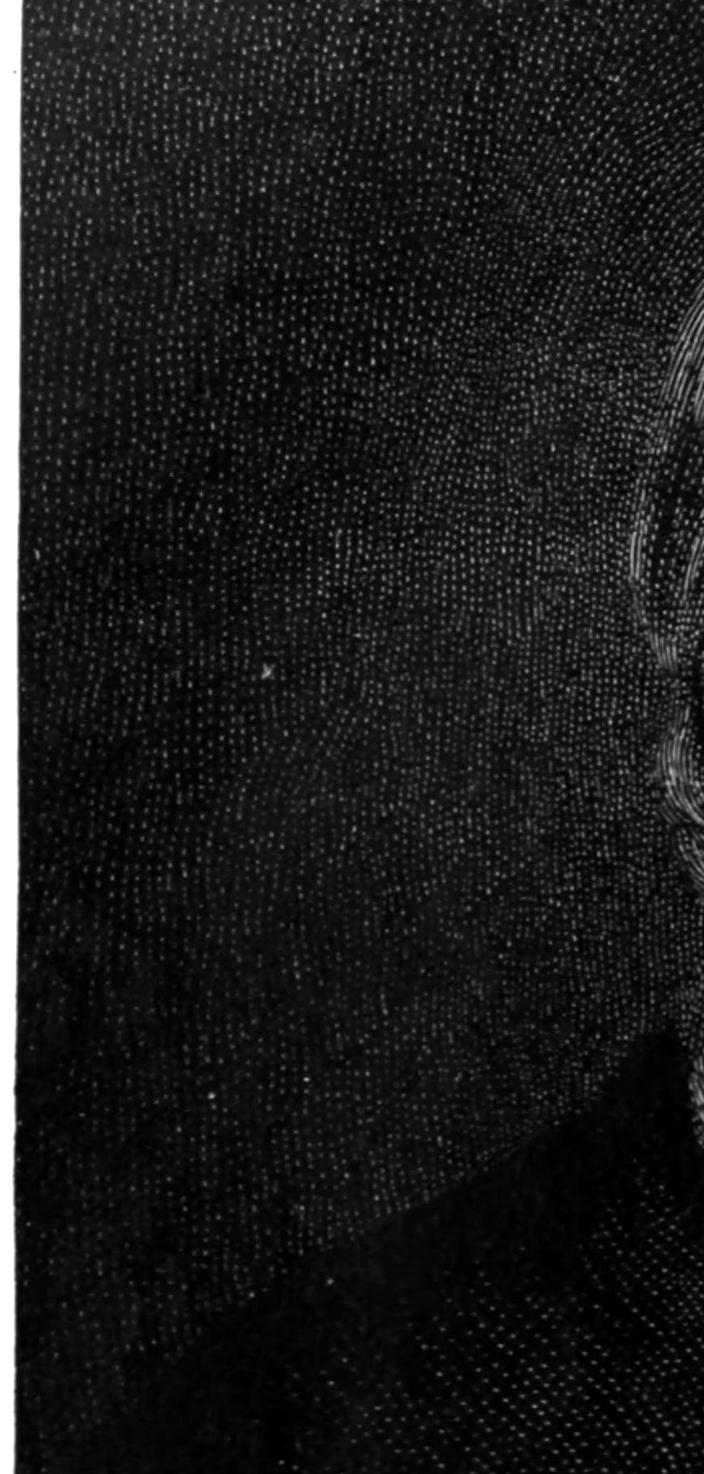



Preparing Our Souls:
Death as the Final Exam
Thoughts from the Pew with Dr. S.G. Cassiere, features a discussion on St. John Henry Cardinal Newman's thoughts on death

10
Preparation Seminarian
Tristan Frisk on the importance and beauty of the sacrament of Reconciliation.

FROM THE EDITOR
Let's talk about death.
What an opening line, right? I lure you all into a false sense of security with a photo of me and a cute dog (Flyer the Beagle, Loyola College Prep's new live mascot), then bam! No warning, no seagueway, let's talk about the fact that all of us are going to die someday, including this dog, and there is nothing we can do about it.
When I studied art in college, I learned about this popular trend that crops up throughout history known as memento mori. It is a Latin phrase that means: "remember that you must die."
In early examples (think early Renaissance), it appeared in scenes of Christ's Crucifixion and death, most often as a human skull at the foot of the cross. Viewers at the time understood it to be the skull of Adam, representing the first sin that brought death into the world.

14
Dignity of Death Guest writer Sr. Elinor Gardner, O.P., discusses Catholic teaching on death and mortality.
While at first limited to overt depictions of death and dying, memento mori evolved over the centuries into a sub-genre of still life. Many examples feature the human skull as a classic symbol of mortality, alongside other representations of the inevitable passage of time. Popular visual metaphors include hourglasses, candles, dead animals, and potted flowers in various stages of decay.
I have included examples of famous memento mori artworks throughout this issue of the magazine. As an artist myself, I find making and contemplating art a helpful tool when meditating or praying on my own eventual death. We Catholics believe that death is not something to fear, but something for which we hope and prepare through prayer, repentance, and reconciliation with God.

FROM THE BISHOP
An opportunity we priests (and bishops) enjoy is teaching about our faith, so I am grateful to be sharing with prospective Catholics the Church teachings during the Cathedral parish’s Sunday OCIA (Order of Christian Initiation of Adults). The class sessions’ atmosphere is enjoyable, as I find myself among those who are curious about the Church, about her teachings, and especially about the relationship they form with other inquirers.
In our November sessions, we reflect upon the saints in the Church, deceased members of our faith, and their ongoing relationship with us. We sometimes come across a particular saint we relate to more than others. And we recall especially in November those departed souls we have known who have gone before us: family members, friends, associates, and those who made an indelible mark on our lives. As these special people come to mind, we recall their lives and how they impacted our own, and we pray for them.
Whether these souls are saints recognized in the Church or holy relatives and friends, this practice underscores what we profess: we are members of the “Communion of Saints.”
In speaking for myself and what I’ve witnessed in ministering to people, many individuals have a particular saint with whom they are close and to whom they offer special intercessory prayers. Many, many of them pray daily for those who journeyed from this life to the next, including those so close to us in this life that their absence stirs up not only emotions with their memory but also reminders of our “communion” with them. Should they be in need of our prayers, we pray for them. And when we live with the confidence that their intercessory prayers to the Lord benefit us, for they are saints, they become a part (daily?) of our prayers to the Lord.
So, each time we profess in the Creed our belief in the presence and importance of the “Communion of Saints,” we make those who have gone
before us an important part of our lives. I made it a habit when I became bishop to invoke the intercessory prayers of my sister, Maureen, and my parents, Joseph and Pauline, before I begin Mass. I ask them to be with me as I celebrate this sacred action, and I ask for their help to fulfill my responsibilities. The Church’s practice to call upon the saints and our beloved departed is a sacred one; it is one we make a regular part of our prayer life, recognizing that they are – even though physically separated from us – still with us in spirit and prayer. I found in my own life and the lives of countless others the intrinsic value of making this kind of prayer beneficial for how we live each day.
May this sacred time of year remind us of these special spiritual aides to our own discipleship and growth in communion with them.


Una oportunidad que disfrutamos los sacerdotes (y obispos) es enseñar sobre nuestra fe; por lo que estoy agradecido de poder compartir con los futuros católicos las enseñanzas de la Iglesia durante la clase dominical de OCIA (Orden de Iniciación Cristiana para Adultos) de la Catedral. El ambiente de la clase es agradable, ya que me encuentro con aquellos que sienten curiosidad por la Iglesia, por sus enseñanzas, y especialmente, por la relación que forman con sus compañeros.
En las sesiones de noviembre reflexionamos sobre los santos de la Iglesia, los miembros fallecidos de nuestra fe y su relación continua con nosotros. A veces escogemos un santo en particular con el que nos relacionamos mas que con otros, y recordamos también especialmente en noviembre a las almas fallecidas que hemos conocido y que nos han precedido: familiares, amigos, conocidos y sobre todo de aquellos que dejaron una marca indisoluble en nuestras vidas. A medida que estas personas especiales nos vienen a la mente, recordamos sus vidas y como impactaron la nuestra, y oramos por ellos.
Ya sea que estas almas sean santos reconocidos en la Iglesia o parientes y

por el obispo
amigos santos, esta practica subraya lo que profesamos; somos miembros de la “Comunión de los Santos.”
Al hablar por mí mismo y por lo que he presenciado en mi ministerio y al hablar personas, es que muchas de ellas tienen un santo en particular con quien están cerca y a quien ofrecen oraciones especiales de intercesión. Muchos, muchos de ellos rezan diariamente por aquellos que pasaron de esta vida a la otra, incluyendo aquellos tan cercanos a ellos en esta vida que su ausencia despierta no solo emociones con los recuerdos, sino también nos recuerdan de nuestra “comunión” con ellos. Si necesitan nuestras oraciones, oramos por ellos. Y cuando vivimos con la confianza de que sus oraciones de intercesión al Señor nos benefician, porque son santos, se convierten en parte tal vez inclusive diariamente de nuestras oraciones al Señor.
Por lo tanto, cada vez que profesamos en el Credo nuestra creencia en la presencia y la importancia de la “Comunión de los Santos,” hacemos de aquellos que nos han precedido una parte importante de nuestras vidas. Cuando me convertí en obispo, me acostumbré a invocar las oraciones de intercesión de mi hermana, Maureen, y de mis padres Joseph y Pauline, antes
de comenzar la Misa; les pido que estén conmigo mientras celebro esta acción sagrada, y les pido ayuda para cumplir con mis responsabilidades. La práctica de la iglesia de invocar a los santos y a nuestros amados difuntos es sagrada; es una que hacemos una parte regular de nuestra vida de oración, reconociendo que ellos, aunque físicamente separados de nosotros, siguen conectados con nosotros en espíritu y oración. Encontré en mi propia vida y en la vida de muchos otros, el valor interior de hacer que este tipo de oración sea de beneficio para nuestro diario vivir.
Que esta época sagrada del año nos recuerde que ellos son ayudantes espirituales especiales para nuestro propio discipulado y crecimiento en comunión con ellos.

Para obtener más información sobre las oportunidades del Ministerio Multicultural en la Diócesis de Shreveport y para encontrar nuestros horarios y lugares de misa en español, por favor escanee el código aquí.

Preparing Our Souls: Death as the Final Exam
Facing the Four Last Things with Urgency, Hope, and Mercy
St. John Henry Cardinal Newman did not mince words. His maxim cuts through the fog of denial that so often surrounds death in our culture. We live as though life will go on indefinitely, as if death is something for the elderly, the sick, or the unlucky. But death is no abstraction – it is the one appointment every human being will keep.
Spiritual writers across the centuries have echoed this truth. Fr. Martin von Cochem’s classic The Four Last Things paints vivid, sobering pictures of death, judgment, heaven, and hell that shake readers out of complacency. By contrast, Fr. Wade Menezes, C.P.M., in his modern catechetical guide under the same title, helps us face these same realities with confidence in God’s mercy. Different voices, same lesson: eternity is real, and preparation is not optional.
November, the Church’s month of the dead, forces us to face this reality head-on. We begin with the joy of the Solemnity of All Saints, which points us to our eternal destiny, and the Commemoration of All Souls, which reminds us that most of us will need
purification before entering heaven’s gates. Between these two feasts, the Church hands us Newman’s truth on a silver platter: life is brief, death is guaranteed, judgment is unavoidable, and eternity — whether heaven or hell — does not end.
Think of death as the final exam for which we cannot cram. Students may put off their studies until the night before and pass, but no one passes the exam of death that way. Our lives are the preparation period. Every day is a study day. Every decision is an answer that either leads us closer to God or away from Him.
We will not be asked how much money we saved, what titles we earned, or how many social media followers we had. The exam questions will be simpler and more piercing: Did you love God with all your heart, soul, and strength? Did you love your neighbor as yourself? Did you repent of your sins and trust in Christ’s mercy?
The sobering truth is this: the grade will be final. There are no retakes, no make-up tests, no extra credit assignments after death. Our answers will stand.
Thankfully, God has not left us to guess the answers. He has given us a “study guide” in the sacraments — those visible signs of invisible grace that prepare us for eternity.
•Baptism washes us clean of Original Sin and makes us children of God.
•Confession (Reconciliation) is the ordinary means by which mortal sins are forgiven, and our souls are restored to grace.
•The Eucharist strengthens us with Christ Himself, the Bread of Life, who promises: “Whoever eats my flesh and drinks my blood has eternal life” (John 6:54).
•Anointing of the Sick is the Church’s final strengthening before the soul goes to judgment.
Each sacrament is both a gift and a preparation. To ignore them is like walking into the final exam with the study guide still sealed.
One of the devil’s favorite lies is, “You have time.” We tell ourselves we’ll return to confession eventually. We’ll repair relationships later. We’ll forgive when it’s convenient. We’ll take faith more seriously after things calm down.
The problem is that death does not
operate on our timetable. It comes when it comes, often without warning. That is why the saints lived with a sense of urgency. “If today you hear His voice, harden not your hearts” (Psalm 95:7–8). They treated each day as a step toward eternity. And when their exam day arrived, they were ready.
Here is the challenge: If today were your last day, what would you wish you had confessed, repaired, or forgiven?
•Would you regret postponing confession and carrying the weight of mortal sin?
•Would you wish you had reconciled with a family member or friend?
•Would you wish you had forgiven instead of clinging to grudges?
•Would you wish you had prayed more fervently for your deceased loved ones, instead of assuming they were already in heaven?
November is a reminder from God that the time to prepare is now. The saints urge us on. The souls in purgatory beg for our prayers. Christ Himself offers mercy in confession and nourishment in the Eucharist.
None of this is meant to paralyze us with fear. The Gospel is not doom, but hope. Our Judge is also our Savior. The One who will test us is the same One who died to give us the answers. His mercy is greater than our sins. His grace is sufficient for our weakness. His Sacred Heart longs to forgive, to heal, and to save.
But we must not confuse mercy with presumption. Presumption says, “God will forgive me later, so I can sin now” (CCC 2092; cf. Sirach 5:4–7). Hope says, “God is merciful, so I will run to Him today”(cf. 2 Cor 6:2; Luke 15:20).
We do not need more reminders that our days are numbered; we need the courage to live as though that truth matters. November offers the perfect opportunity to reset, confess, forgive, and love with renewed urgency.
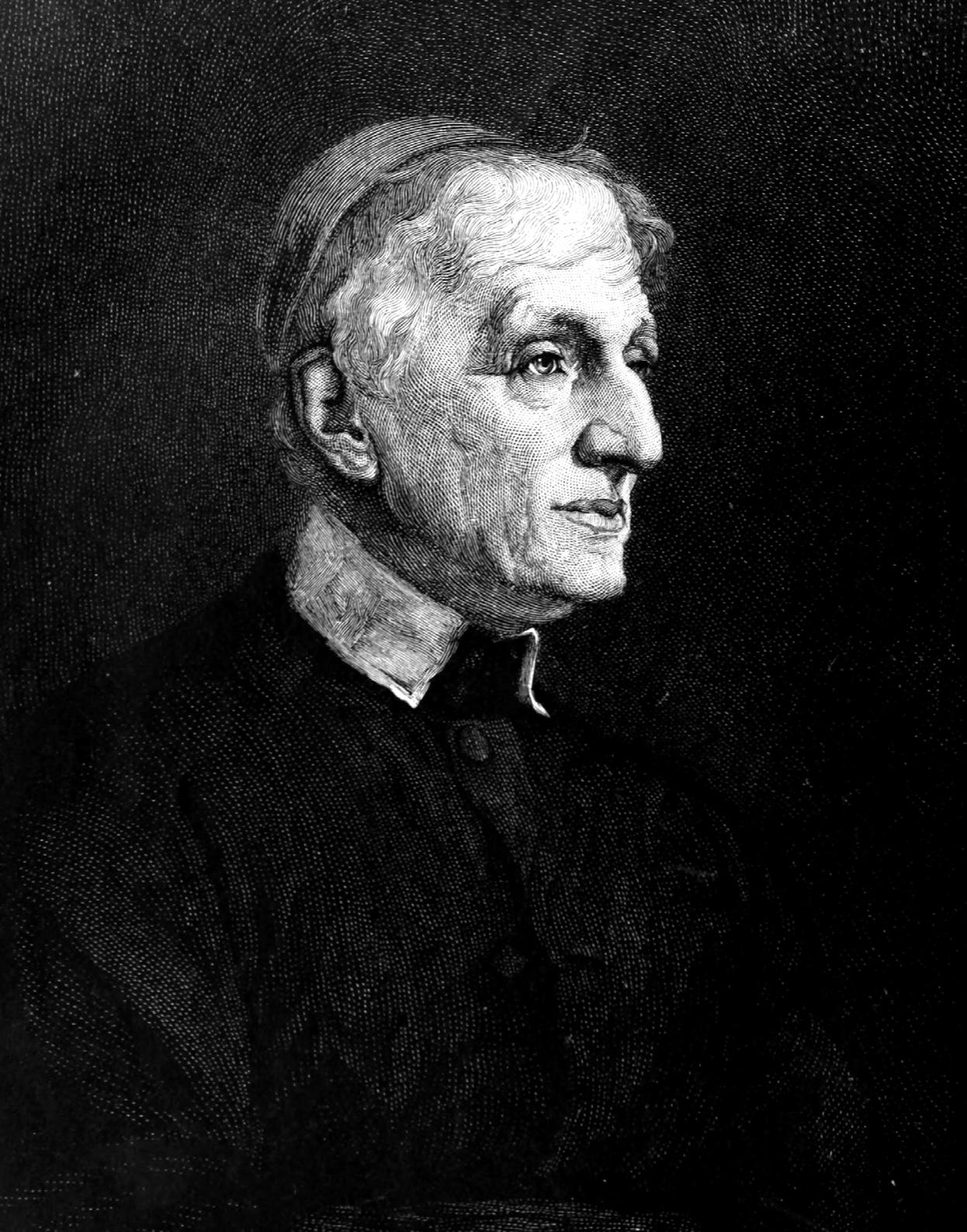
“Life is short. Death is certain. Judgment is final. Eternity is long.” —St. John Henry Cardinal Newman
The final exam is coming. The only way to prepare is to open the study guide today. Do not delay. Go to the Sacrament of Confession. Receive the Eucharist. Pray for the dead. Repair what is broken. Forgive what festers. If you do, then death will not be a fearful unknown, but the longawaited moment when Christ Himself says, “Well done, good and faithful servant…enter into the joy of your master” (Matthew 25:23).
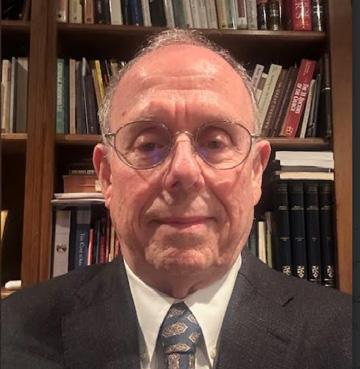
S. Germain Cassiere, MD, FACP is a retired Internist and parishioner at the Cathedral of St. John Berchmans, writing on faith, virtue, and the Catholic spiritual life from the pew perspective.
St. John Henry Cardinal Newman, from the Century Magazione, 1882. Anonymous engraver.
Preparation
Some occasions in life call for bigger preparations than others. A presentation at work requires us to know what’s going on, a family wedding calls for a clean shave and a nice suit, and even a drive demands you bring your I.D. In situations having big ramifications or important people, we have to be ready. The Mass is no exception. But even though Mass is the most important part of our lives, we can stop preparing because we have grown comfortable with it. We know what to expect – or think we do. However, it’s precisely because we know who is going to be there (Jesus) and what He is going to do (transform our lives) that we are called to prepare. So, how should we prepare?
One way to prepare our souls for Mass is the Sacrament of Reconciliation. The sacrament’s name itself gives us insight into its effect on our lives: “re”
means “again,” “con” means “with,” and “cilia” means “eyelash.” Do you see? In this sacrament, Christ invites us to recognize our weaknesses and sins so that we can (literally) “again with eyelash,” meaning (less literally): return to being eye-to-eye, face-to-face, with God. Despite all we do that He doesn’t agree with and all the times we turn our backs to Him, God continues to desire to look at our face with His and then to break bread with us. Why? Out of love.
At the same time, Christ reminds us to “go first and be reconciled with your brother” (Mt. 5:24) before offering our gifts at the altar. We cannot be reconciled to God unless we first reconcile with, forgive, or show mercy to our brothers and sisters. Therefore, reconciliation is an indispensable requirement of the Christian life. It is here that preparation for the Mass

penetrates our entire lives. Pope Leo XIV tells us that to prepare is “to renounce a demand, to stop waiting for others to change, to take the first step. Perhaps to listen more, to act less… Because where love has been prepared, life can truly flourish” (General Audience 8/6/25, vatican.va).

Tristan Frisk is a seminarian for the Diocese of Shreveport.
"Saint Jerome Writing" (1605-1606), Michelangelo Merisi de Caravaggio Galleria de Borghese, Rome, Italy.
Preparing Our Souls
with Generosity and Faith
"You can’t take it with you."
Isn’t that what we always hear?
All material things we have on earth will stay on earth once we are gone. That may not be comforting because we all work hard for life’s necessities and luxuries, and there is nothing wrong with that. But we should be aware when these material things (or the pursuit of them) replace our faith and turn our focus from God.
“You can’t outgive God.”
What does this mean? St. Ignatius of Loyola once wrote, “God will not be outdone in generosity.” He believed God’s love and generosity are truly boundless, and when we give, especially sacrificially, we receive more in return. Luke 6:38 shares another example of God’s generosity when Jesus teaches, “Give and gifts will be given to you; a good measure, packed together, shaken down, and overflowing, will be poured into your lap. For the measure with which you measure will in return be measured out to you.”
Sometimes, it is hard to put our faith in God, especially when it comes to giving. Finances can be tight and times are uncertain. When looking at a budget, charity may be moved to the list’s bottom. But just think about the amazing and unexpected gifts we can receive when we put our faith in God and truly think of our possessions as what they are – gifts from God!
“God will provide.”
Much easier said than done, this phrase reminds us that when we are hesitant or even afraid to put our faith in God, He will return it to us in abundance. Paul writes in his Second Letter to the Corinthians, “Moreover, God is able to make every grace abundant for you, so that in all things, always having all you need, you may have an abundance for every good work” (2 Cor 9:8). In fact, Chapter 9 of 2 Corinthians is filled with examples of generosity as the route to prevent future deprivation. We just need to put our faith in God’s hands.

“By failing to prepare, you are preparing to fail.”
Benjamin Franklin’s famous words still ring true today. There are many ways we can and should prepare our souls for mortality. Whether spiritual, physical, or practical, our preparation’s ultimate goal is to find peace and assurance in knowing that one’s departure is part of God’s greater plan for us. So, let’s get started by sharing the gifts given to us by God.
There’s no time like the present.

Lucy Medvec is the Director of Development and Stewardship for the Diocese of Shreveport.

ASeasonSunset
The older I get, the more I love sunsets. I often walk in the evening to watch God paint the sky in brilliant, or sometimes subtle, colors of orange, purple, and sky-blue pink. I particularly love driving up to Cross Lake and watching the day’s last rays bounce off the water as a sailboat or two glides back to the dock. Maybe this recently-acquired love for sunset scenes is my growing awareness that I am probably in the final quarter of my earthly existence. Autumn seems to bring with it the phrase “memento mori,” reminding me of the line from William Cullen Bryant’s poem “Thanatopsis:" Yet a few days, and thee / The all-beholding sun shall see no more / In all his course.
Death sneaked up on me several times this year. In late winter, a younger cousin took her own life. Just a few months earlier, she and I had joined our rowdy family members dancing on the beach in celebration, at a reunion. A lovely sprite of a teenage girl, she glowed with an outward and inward beauty. Her suicide left us bewildered and devastated.
Then this spring, my elderly aunt showed signs of rapidly-advancing dementia. I booked a flight to see her while she still knew who I was, but the grim reaper arrived ahead of me. I remember so many fun times we shared — trips to New Orleans, shopping excursions, and wedding celebrations. One month, she was a vibrant octogenarian eagerly anticipating our next visit, and the next month, she was a withering shell of a person angry at
her fate and had quickly lost all traces of her personality and physical ability. Her obituary seemed to whisper to me, “You could be next!”
And just a few weeks ago, I attended yet another funeral, this time of a dear friend only a few months older than me. In the prime of her life, she received the hopeless diagnosis of ALS. She had everything to live for: Beautiful daughters living close by with her sonsin-law and grandchildren to keep her swimming daily in the stream of life. Two wonderful sisters. A new home. A close circle of friends. A promising upcoming LSU football season that she enthusiastically embraced every fall. And then – that cruel death sentence!
These past few months gave so many reasons for me to shake my fist at the Angel of Death and shout, “ENOUGH ALREADY!!!” Young campers swept away in the night by a flash flood. Catholic school children gunned down while attending Mass. A young Christian activist assassinated in front of thousands of college students.
But, my friend’s beautiful memorial service brought me back to my faith. It recalled St. Paul’s words in his letter to the Romans: nothing – not even death – can separate us from God’s love that is in Christ Jesus. And again, in St. Paul’s letter to the church at Corinth, he assures us that we will all be changed in an instant. We mortals will be clothed with immortality. Death will be swallowed up in victory!
As we rose to sing “Amazing Grace” at that most recent funeral, I saw my friend leaping from her wheelchair to dance with her parents who were greeting her in heaven. I remembered the poet John Donne’s words in his Holy Sonnet 10: Death, be not proud, though some have called thee / Mighty and dreadful, for thou art not so; […] One short sleep past, we wake eternally / And death shall be no more; Death, thou shalt die.
My sunset reflections often end with a line from Psalm 139 (my favorite!): All the days ordained for me were written in your book before one of them came to be.
I find ironic comfort knowing that my days were numbered before I was born, and that one day soon my number will come up. And I remember the final lines of the poem cited earlier: Sustained and soothed / By an unfaltering trust, approach thy grave,/ Like one who wraps the drapery of his couch / About him, and lies down to pleasant dreams.


Karen Dill is a spiritual director for the Diocese of Shreveport and a parishioner at St. Elizabeth Ann Seton.
Dignity of Death
The ancient philosopher Epicurus taught that death was nothing to fear: “Death is nothing to us, since when we exist, death is not yet present, and when death is present, then we do not exist.” This is entirely reasonable, assuming that nothing in us survives death apart from the material of which we are made, but which is no longer us. Thus, there is no “I” that exists both before and after death and that can, therefore, be said to suffer death. “I” do not die—for a time, I live, and when I cannot live anymore, there is no more “I” at all—therefore, “death is nothing” to me.
And so, having accepted death as our existence’s natural end, one need not think about death much and should instead think about living well. Hence, “The wise man neither rejects life nor fears death.” According to this Epicurean standard, our culture is quite wise, for we are expert in avoiding thinking about death. We have “celebrations of life” instead of funerals. We avoid saying our loved one died; we instead say, “She passed away.”
This should give us pause. Christianity teaches that our souls are not destroyed in death but continue to exist and are in fact immortal. In the language of scholastic theology , our souls are spiritual substances that are not subject to decay in the way bodies are. Something underlies the transition from being alive to being dead; something (or someone) dies. Every plant and animal that dies
simply ceases to exist as a living being; it does not undergo death because that being no longer exists after death. To die, then, is a sign of a high metaphysical dignity – paradoxically, only an immortal being can be said to undergo death!
From this viewpoint, we ought to be think ing a great deal about death, because the “act” of dying distinguishes us from the rest of the natural world. But is dying really an act? Even if we survive death, is it not simply something that “happens” to us, not something we “do”? Yes and no. It is true that we suffer death, that it is outside our control – of course, we can hasten it or postpone it to a certain degree, and through violence, we can cut short a life, but we cannot avoid it in the end. Still, we have choices about how we die: do we resist or submit to it? In some cases, the dying person makes a free act of “letting go” by which he makes the transition. Thus, death for a human being can be a personal act. The German Catholic philosopher Robert Spaemann put it this way: “Only a life had can be surrendered. Death as the surrender of life is the quintessentially personal act.”
The fact that we are beings who can die because something in us does not die reflects the living God in whose image we are made. Thomas Aquinas argued, “Nothing ceases to live except through separation from life. But nothing can be separated from [itself], since every separation takes place through the division of something from something. It is therefore impossible that God
cease to live, since He is His life.” Our souls’ immortality is a share in God’s inalienable life.
Even souls who ultimately reject God – that is, reject life – do not cease to exist, but their existence is described as “eternal death.” To exist in hell is to exist in alienation from life’s source, but such is the gift of immortal existence (bestowed by God on rational souls in creating them) that these souls cannot completely cease to live, as much as they try by rejecting the source of life.
Death and dying remain fearful things: every living being naturally abhors its own corruption. Moreover, we fear the divine judge before whom we are to appear after our death. But this latter fear is quite different than the former. It is a fear grounded in faith, and it lives alongside hope. For death becomes for the Christian an object of hope, insofar as souls who cleave to God unite themselves to Life itself. How could a soul united to Life die? And in Christ we have confidence of being reconciled to God. This is the hope that transforms Christian death.

Sr. Elinor Gardner, OP, is a member of the Dominican Sisters of St. Cecilia and the Affiliate Assistant Professor of Philosophy at the University of Dallas in Irving, TX.

"Still Life: Vase with Twelve Sunflowers" 1888, Vincent Van Gogh. Neue Pinakothek, Munich.
A Parent's Grief
Navigating the Loss of a Child in Sacred Remembrance

In 2013, Celeste Gauthier Tatum buried her infant son. After 36 weeks of pregnancy, a placental abruption led to Beau’s death. She and her family then quietly suffered in a world where infant death and child loss were rarely acknowledged or discussed. While the Catholic Church provided comfort with the baptism and burial of her third son, Celeste could not locate an appropriate support group or book, or even other women to commiserate with in her sadness and sense of invisibility. Losing a child
at any age is horrific, but grieving the loss of an infant, especially in secular society, requires the mother to bear the unique “cross” created by comments like “You can have another baby,” or “Lots of people have miscarriages;” these imply to the heartbroken mother that her child was not important and her pain is dismissed as dramatic.
A child dying before his parents violates an unconscious agreement with God about time and our expectations for this life. It feels like a bomb exploding inside the mother; shrapnel cutting into all her organs, creating deep wounds that scab with time, but are easily opened by a memory or recognition of a lost opportunity. Only through time and faithfulness to our Creator can He place salve on these wounds to extinguish daily tears and her general malaise over living longer than her child. Grieving parents receive some solace in understanding the Catholic faith’s sacraments and our commending ourselves to the mercy of our Lord and to our Lady in the Sorrowful Mysteries of the Rosary.
When, in January 2025 on his XM Radio program, Cardinal Timothy Dolan, Archbishop of New York, featured Kelly Breaux’s Red Bird Ministries that provides Catholic support for families who have lost a child of any age, Celeste believed it would be an asset in the Shreveport Diocese and inquired further. Red Bird later contacted our Office of Marriage and Family Life to confirm Celeste, who has a master’s degree in Counseling Psychology and is qualified as an advocate to minister to families of loss, as the advocate for a pending Chapter in the Shreveport diocese.
As a Red Bird advocate, Celeste is a “wound healer” through a multimedia approach when she helps parents (dads are also invited to receive healing!) tell their story and provides for their needs through small grief groups, blessings, the sacraments, and stories of the saints. She helps parents understand the Sacrament of Baptism to alleviate any fear that their child is not with our Lord. Celeste joins parents to just converse over coffee and connects parents with varied resources, such as blessing booklets for commemorating in your own parish an infant who died before birth.
If you are in pain from losing a child, Kelly Breaux’s own story in Hiding in the Upper Room, a memoir (sold
at Amazon.com) has instilled hope in other women. And the Red Bird Ministries app can both connect you to immediate care through “comfort calls” and help identify local Catholic therapists.
An estimated 10% of women suffer miscarriages in the USA, with less than 1% occurring in the last trimester. After a pregnancy of 20 weeks, the loss is considered a stillborn child, who must be buried. You and your family may not have experienced a miscarriage or other death of a child, but many other families have and need your support.
In 2026, the Diocese of Shreveport and Celeste will offer small groups around the “33 Day Guide for Healing and Restoration to the Holy Family.” In-person sessions are preferred, but virtual sessions will be considered.

Noemi Saybe is the Director of Marriage and Family Life at the Diocese of Shreveport.
To request the "33 Day Guide for Healing and Restoration to teh Holy Family" for your church or for more information, fill out our brief form at https://www.redbird.love/shreveport-la or contact the diocesan Office of Marriage and Family Life at marriagefamily@dioshpt.org or by calling 318-219-7309. You are not alone.

La Memoria Sagrada
del Duelo de una Madre
por su Hijo
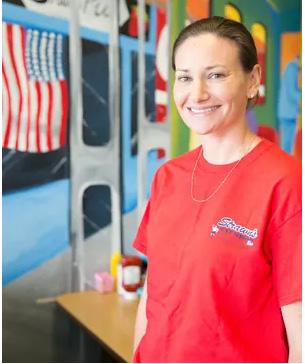
En 2013, Celeste Gauthier
Tatum enterró a su hijo recién nacido. Después de 36 semanas de embarazo, un desprendimiento de placenta provocó la muerte de Beau. Ella y su familia sufrieron en silencio en un mundo donde la muerte infantil y la pérdida de hijos rara vez se reconocen o se discuten. Aunque la Iglesia Católica ofreció algo de consuelo a través del bautismo y entierro de su tercer hijo, Celeste no pudo encontrar un grupo de apoyo, libro o mujeres con quienes compartir
su tristeza y sentimientos de invisibilidad. Perder un hijo a cualquier edad es una experiencia desgarradora, pero el duelo por un bebé, especialmente en una sociedad secular, exige a la madre cargar una cruz única, enfrentando frases como “puedes tener otro” o “muchas personas pierden embarazos,” que minimizan su dolor y la importancia de su hijo.
Cuando un hijo muere antes que sus padres, esa muerte rompe un acuerdo inconsciente con Dios sobre el tiempo y las expectativas de vida. Es como una bomba que explota dentro de la madre hiriendo todos sus órganos, dejando cicatrices profundas que pueden sanar con el tiempo, pero que fácilmente se abren con un recuerdo o la conciencia de lo que no pudo ser. Solo con el paso del tiempo y una vida de fe y oración, el Señor puede aplicar un bálsamo sanador sobre esas heridas: aliviar el dolor persistente, consolar las lágrimas cotidianas, y brindar esperanza ante el peso de haber sobrevivido a un hijo. En la riqueza de la tradición católica — en los Misterios Dolorosos del Rosario, en los Sacramentos y en la infinita misericordia de Dios— los padres en
duelo pueden encontrar un consuelo.
En enero de 2025, en su programa de radio XM, el Cardenal Dolan presentó Red Bird Ministries, de Kelly Breaux, un ministerio católico de apoyo para familias que han perdido un hijo. Celeste sintió que este ministerio sería valioso para la Diócesis de Shreveport. Con su maestría en Psicología de Consejería, está calificada como defensora para acompañar a familias en duelo. Las defensoras de Red Bird trabajan “sanando heridas,” construyendo una comunidad que ilumina la oscuridad de la pérdida de un hijo, sin importar la edad. A través de diversos recursos multimedia, Red Bird ayuda a los padres a compartir lo que vivieron y recibir apoyo mediante pequeños grupos de duelo, bendiciones, Sacramentos y testimonios de Santos. A veces, comprender mejor el Sacramento del Bautismo ayuda a aliviar el temor de que un hijo perdido no esté con el Señor.
Una aplicación anglo disponible en Apple Store ofrece asistencia inmediata, desde llamadas de consuelo hasta localizar terapeutas católicos en tu área. Celeste puede facilitarte folletos para bendecir a un bebé fallecido antes del nacimiento en tu parroquia, además de otros recursos o simplemente encontrar con quien conversar tomando un café. Si estás
sufriendo la pérdida de un hijo y eres bilingüe, el testimonio de Kelly Breaux, Hiding in the Upper Room, a memoir”, está disponible en Amazon. com. También existen libros similares en español.
Se estima que el 10% de las mujeres en EE. UU. sufrirán un aborto espontáneo, y menos del 1% ocurre en el tercer trimestre. Después de las 20 semanas, la pérdida se considera un niño nacido sin vida, quien debe ser enterrado. Aunque tú o tu familia no hayan vivido esta pérdida, muchas familias en nuestra diócesis necesitan tu apoyo.
Próximamente, en 2026, la Diócesis de Shreveport ofrecerán un grupo pequeño: “33 días de sanación y restauración con la Sagrada Familia.” Las sesiones presenciales son preferidas, pero se reconsiderará una opción virtual.

Noemi Saybe es la directora de Matrimonio y Vida Familiar de la Diócesis de Shreveport.
Si No Conocías al Niño Para una Pérdida Pretérmino
Haz preguntas sobre su hijo
Di el nombre del niño y expresa que hubieras querido tener la oportunidad de conocerlo
Pregunta cómo era o sobre algo que amaban mucho de él o ella
Preséntate
Pregunta si eligieron un nombre para su bebé. Sé generoso al usar el nombre de su bebé.
Pregunta sobre la fecha estimada de parto y haz una nota para comunicarte ese día – “Recordando a tu dulce bebé hoy ”
For a Preterm Loss Qué Hacer
Ofrece un recuerdo
Haz el esfuerzo de ir al funeral o servicio conmemorativo
No tengas miedo de su dolor.
Siéntete cómodo con el silencio. Hazle saber al padre/madre en duelo que solo quieres estar con ellos
Envía una nota escrita a mano y/o una tarjeta de misa
Considera enviar flores más tarde, después de que las primeras flores hayan marchitado, tal vez un mes después del fallecimiento o en la siguiente festividad
Ofrece consuelo físico
Envia una manta o peluche con el mensaje: algo para sostener cuando tus brazos se sientan vacíos o algo para abrazar cuando necesites consuelo
Se concreto en ofrecer ayuda No esperes a que la familia en duelo tenga que contactarte.
Puedo llevarte la cena el proximo martes?
Regala tarjetas de restaurantes
Corta su césped o deja macetas con flores en la entrada
Envía una tarjeta o imagen simple con el nombre de su hijo
Comparte fotos que puedas tener del niño
Regala una planta, árbol, campanilla de viento u otro obsequio que ayude a mantener viva la memoria de su hijo.
Visita la tumba de su hijo si es posible y envíales una foto para que sepan que estuviste allí
Haz estas cosas en cualquier momento, incluso si la pérdida fue hace semanas, meses o años. Los padres aún están en duelo Tu amabilidad seguirá siendo significativa
Haz planes para recordar el aniversario del fallecimiento de su hijo con una tarjeta u otro gesto.
Escucha generosamente y permíteles compartir su dolor tantas veces como lo necesiten
Invita a sus otros hijos pequeños a citas de juego o salidas
Recuerda a su hijo por su nombre en las festividades.
What is
the Communion of Saints?
At the closing of our bi-weekly faith companioning group meetings, members share where we find hope. One person recently confided that she finds hope in the communion of saints and their constant support and prayer for us. Since then, I’ve been unpacking the image she painted and sifting through my own relationship with this community in whom we profess our belief every Sunday. Who is this mystical group we call the “Communion of Saints”?
A quick glance at the Catechism of the Catholic Church (CCC) yields the short answer that the communion of saints is the Church. As I reflected on this, paragraphs 952 and 953 of the Catechism held my attention and settled in my spirit, including: “Everything the true Christian has is to be regarded as a good possessed in common with everyone else. All Christians should be ready and eager to come to the help of the needy… and of their neighbors in want” (CCC 952).
This tugged strongly at my heart. You see, it is easier to imagine that those Christians who went before us are now
praying for us and that we, in turn, pray for and to them. But the idea of seeing those in need and living around us now as part of the communion of saints –well, that’s a different story.
Jesus’ teachings to feed the hungry, clothe the naked, welcome the stranger, forgive and love your enemy, shelter the homeless, and heal the sick are nothing new. But understanding that those in need are part of this “community of saints” seems to elevate this loving and sharing lifestyle to the highest of priorities.
“In this solidarity with all [people], living or dead, which is founded on the communion of saints, the least of our acts done in charity redounds to the profit of all” (CCC 953).
November is a time when we commemorate the members of the communion of saints who have died.
We can do this is by remembering our solidarity with them and with those still living who we feed, clothe, forgive, love, shelter, and heal – for it “redounds to the profit of all.”
As you meditate throughout November
on how to fulfill your desire to live as a one in the community of saints, reflect and ponder the following questions:
•Who in my neighborhood, city, state, country, and world can I help feed today?
•Who is in need of warm clothes for the upcoming winter?
•Who are the strangers in our land being mistreated, and how can I help them?
•Which of the many minorities being ignored can I attend to?
•Who has hurt me or other members of society that I can forgive?
•Who needs shelter that I can provide?
•Who needs health care but cannot afford it anymore?
In his first major document, I Have Loved You, Pope Leo XIV teaches the following:
“For us Christians, the problem of the poor leads to the very heart of our faith” (110).
Finding Unity and Joy in the Confiteor
Saints?
“No Christian can regard the poor simply as a societal problem; they are part of our family.’ They are ‘one of us’” (104).
“Indeed, one of the priorities of every movement of renewal within the Church has always been a preferential concern for the poor” (103).
As part of the communion of saints, the poor and neglected need and deserve our utmost attention during November. How will you honor their needs so that your work’s graces rebound for the profit and common good of all?

Mike Van Vranken is a spiritual director for the Diocese of Shreveport and a teacher of new spiritual directors for the Archdiocese of New Orleans.
I confess, to Almighty God and to you, my brothers and sisters, that I have greatly sinned in my thoughts and in my words, in what I have done and what I have failed to do, through my fault, through my fault, through my most grevious fault; therefore I ask blessed Mary ever-Virgin, all the Angels and Saints, and you, my brothers and sisters, to pray for me to the lord our God.
As a convert, I vividly remember my first encounter with the beauty of each prayer shared by the Catholic Church. I recall hearing for the first time the Divine Mercy Chaplet and feeling it move me to tears in thanksgiving for His beloved mercy. When I attended daily Mass and first heard the St. Michael prayer, I couldn’t distinguish each word, as the congregation spoke in a slightly staggered chorus, but the prayer’s power was palpable! I went home immediately after Mass to research it, and I memorized it.
Another prayer that spoke deeply to my heart was the Confiteor, also known as “I Confess.” Of course, first and foremost, it is a prayer of repentance and confession, but it is so much more than that! It also calls Christians to unite as brothers and sisters and help each other along the path to sainthood. Now, this prayer in no way replaces the Sacrament of Reconciliation, but it does help us to prepare our hearts for the gift of reconciliation and compels us to perform an examination of conscience as we consider what we have done and what we have failed to do.
My husband, Blaine, and I decided to begin each Confirmation preparation
class this year with the Confiteor, and what a blessing it has been! When I see the students strike their chests three times as they declare that their sins occurred through their own decision or omission, some youth close their eyes, truly considering the weight of their actions. Hearing them then ask the Blessed Virgin Mary and each other for prayers to overcome sin, I feel such love swell in my heart for these children. I hope, through repeating this prayer, that they begin to comprehend and more fully experience our faith’s unity. I hope the Confiteor helps them learn that, with prayer, we are forever connected to the Father through Christ, and we are all called to intercede for each other both on Earth and in Heaven.

Jennifer Nix is a parishioner and catechist at St. Elizabeth Ann Seton Catholic Church in Shreveport and the Day Service Coordinator at Hope Connections.
Forgiveness, Obedience,
& the Eucharist
Lately, I have questioned everything; which led me to ask the Lord about my purpose. I think many can relate to imagining the search for our “purpose” as a destination — a mission, career, or visible goal that proves our life meant something. While the Lord didn’t give me a blueprint for my search, He did give me three words: forgiveness, obedience, and the Eucharist.
So, a month ago, I attended “Healing the Whole Person,” a retreat from the John Paul II Healing Center, led by Dr. Bob Schutz, Sr. Miriam James Heidland, and Bart Schutz. Feeling spiritually deaf, I knew God was near – He always is – but I could not hear Him. I was restless. I was searching and running at the same time. And I knew the problem: I had filled my life with noise – external and internal.
Silence was uncomfortable. Distractions were easier. And when I did not know how to respond to situations, I reacted with frustration instead of love. My impatience was louder than my prayer life.
The Wake-Up Call: Forgiveness
A powerful moment in the retreat invited us to forgive – not vaguely, not conceptually, but personally. I had to stand before the Lord and name the people I was still holding in my heart. I thought I had already forgiven some of them. Others I didn’t want to forgive. And then came the hardest to consider: the people from whom I needed to ask forgiveness and the parts of myself I refused to forgive.
I had to confront a reality I didn’t want to face: I cannot prepare my soul for eternity when I am clinging to resentment in this time. How can I ask God for mercy when I withhold it from others?
We like to think that forgiveness is optional – something we give when we feel ready. But forgiveness is not a feeling. Forgiveness is obedience; not because God wants to control us, but because He wants to set us free. Mercy is not a suggestion: “Amen, I say to you, whatever you bind on earth shall be bound in heaven, and whatever you loose on earth shall be loosed in
heaven” (Matt. 18:18). I need to let go, YOU need to let go.
“What is not transformed is transmitted.” — Sr. Miriam James Heidland
Obedience: Trust, Not Slavery
When we hear the word obedience, some of us cringe. We imagine control or loss of freedom. But obedience to God is not slavery – it is alignment. It is choosing to trust His wisdom over my impulses. It is surrendering my timing, my understanding, and even my right to be right.
I realized something painful: I was obeying God in the areas where it was easy but negotiating with Him in the areas that had a cost.
And yet, holiness is not found in the comfortable "yes." It is found in the inconvenient one.
Obedience prepares the soul like discipline prepares the body. You don’t train because you like exercise; you train because you love the goal. And

JOIN US ON A

Marian Procession

Celebrating Nearly 500 Years of the Apparition of our Lady of Guadalupe
Saturday, December 13th
Time: 8:00 AM - 10:00 AM
Start: The Catholic Center
Finish: Cathedral of St John Berchmans (40-minute walk)
Let’ s come together in prayer, song, and love to honor our Blessed Mother on this special day.
Bring your rosary and your family!
Breakfast will be available afterwards Tamales will be sold and all proceeds will go toward the seminarians ’ tuition
For more info contact the office of Multicultural Ministry 318-219-7265

our goal is not earthly success – our goal is heaven. Our love for God should lead us into obedience, not into living out our opinions.
Eucharist: The Anchor of Our Journey
The third word that persistently returned to me in prayer was Eucharist. And I realized: forgiveness heals my past, obedience sanctifies my present, but the Eucharist secures my future. If I truly believe that the Eucharist is the Living God – Body, Blood, Soul,
and Divinity – then how can I live as though it were routine?
Preparing our souls for eternity is not about waiting for death – it’s about choosing how to live now. Every Mass is a dress rehearsal for heaven. Every Communion is a foretaste of eternal life. And yet, how many times do I receive Him distracted, rushed, or unprepared?
The saints often spoke about living in a state of readiness – not in fear, but in love; not obsessed with death, but
conscious of eternity. The Second Vatican Council’s Ecclesia de Eucharistia affirms that the “Eucharist contains the Church’s entire spiritual wealth: Christ himself, our passover and living bread” (Ecclesia de Eucharistia, 1). The Synod of Bishops further explains that the Eucharist “makes present the priesthood of Christ… continually renewing the Church” (The Eucharist: Source and Summit, 21). We are the Church, and we need constant renewal. I need constant renewal. You need constant renewal.
When we receive Communion while distracted or hurried, we miss the transformative power that sanctifies our present and secures our future. Each Mass becomes a dress rehearsal for Heaven, a moment in which the sacrament’s grace shapes us to become more like Christ.
God calls us to live in freedom –freedom from unforgiveness – being obedient, and then we can receive Him fully. Forgiveness, obedience, and the Eucharist lead us to freedom, healing, and restoration.
I invite you to a self-examination, right now. Write down your answers to: Who do I still need to forgive? Where is God asking for obedience? How am I approaching the Eucharist?

Karla Alvarez is the Director of Multicultural Ministry for the Diocese of Shreveport.
Perdón, Obediencia
& la Eucaristía
Últimamente he estado cuestionándolo todo. Y al cuestionarlo todo, le he preguntado al Señor sobre mi propósito. Creo que muchos podemos identificarnos: cuando buscamos nuestro “propósito”, lo imaginamos como un destino — una misión, una carrera, un logro visible que pruebe que nuestra vida tuvo sentido. Pero en mi búsqueda, el Señor no me dio un plan detallado; me dio tres palabras: perdón, obediencia y la Eucaristía.
Hace un mes, asistí al retiro Sanando a la Persona Completa, del John Paul II Healing Center, dirigido por el Dr. Bob Schutz, la Hermana Miriam James Heidland y Bart Schutz. Elegí asistir porque me sentía espiritualmente sorda. Sabía que Dios estaba cerca — siempre lo está — pero no podía escucharlo. Estaba inquieta. Buscaba y, al mismo tiempo, huía. Sabía cuál era el problema: había llenado mi vida de ruido — externo e interno.
El silencio se volvió incómodo. Las distracciones se hicieron más fáciles. Y cuando no sabía cómo responder
a las situaciones, reaccionaba con frustración en lugar de amor. Mi impaciencia era más fuerte que mi vida de oración.
El Llamado del Perdón
Uno de los momentos más poderosos del retiro fue la invitación a perdonar — no de manera vaga, ni conceptual, sino personalmente. Tuve que ponerme frente al Señor y nombrar a las personas que todavía guardaba en mi corazón. Algunas pensaba que ya las había perdonado. Otras no quería perdonar. Y luego vinieron las más difíciles — aquellas a quienes necesitaba pedir perdón, y las partes de mí misma que me negaba a perdonar. Esto me hizo enfrentar una realidad que no quería ver: no puedo preparar mi alma para la eternidad si me aferro al resentimiento en el tiempo. ¿Cómo puedo pedirle a Dios misericordia si me la niego a otros?
Nos gusta pensar que el perdón es opcional — algo que damos cuando nos sentimos listos. Pero el perdón no es un sentimiento. El perdón es
obediencia. No porque Dios quiera controlarnos, sino porque Él quiere liberarnos.
La misericordia no es una sugerencia: “Les aseguro que todo lo que aten en la tierra quedará atado en el cielo, y todo lo que desaten en la tierra quedará desatado en el cielo.” (Mateo 18:18) Necesito soltar. TÚ necesitas soltar. "Lo que no se transforma, se transmite." — Hermana Miriam James Heidland
Obediencia: Confianza, No Esclavitud
Cuando escuchamos la palabra obediencia, algunos nos gusta. La asociamos con control o pérdida de libertad. Pero obedecer a Dios no es esclavitud — es alineación. Es elegir confiar en Su sabiduría por encima de mis impulsos. Es rendir mi tiempo, mi entendimiento y hasta mi derecho a tener la razón.
Me di cuenta de algo doloroso: obedecía a Dios en lo fácil, pero negociaba con Él en lo que me costaba algo. Y, sin embargo, la santidad no
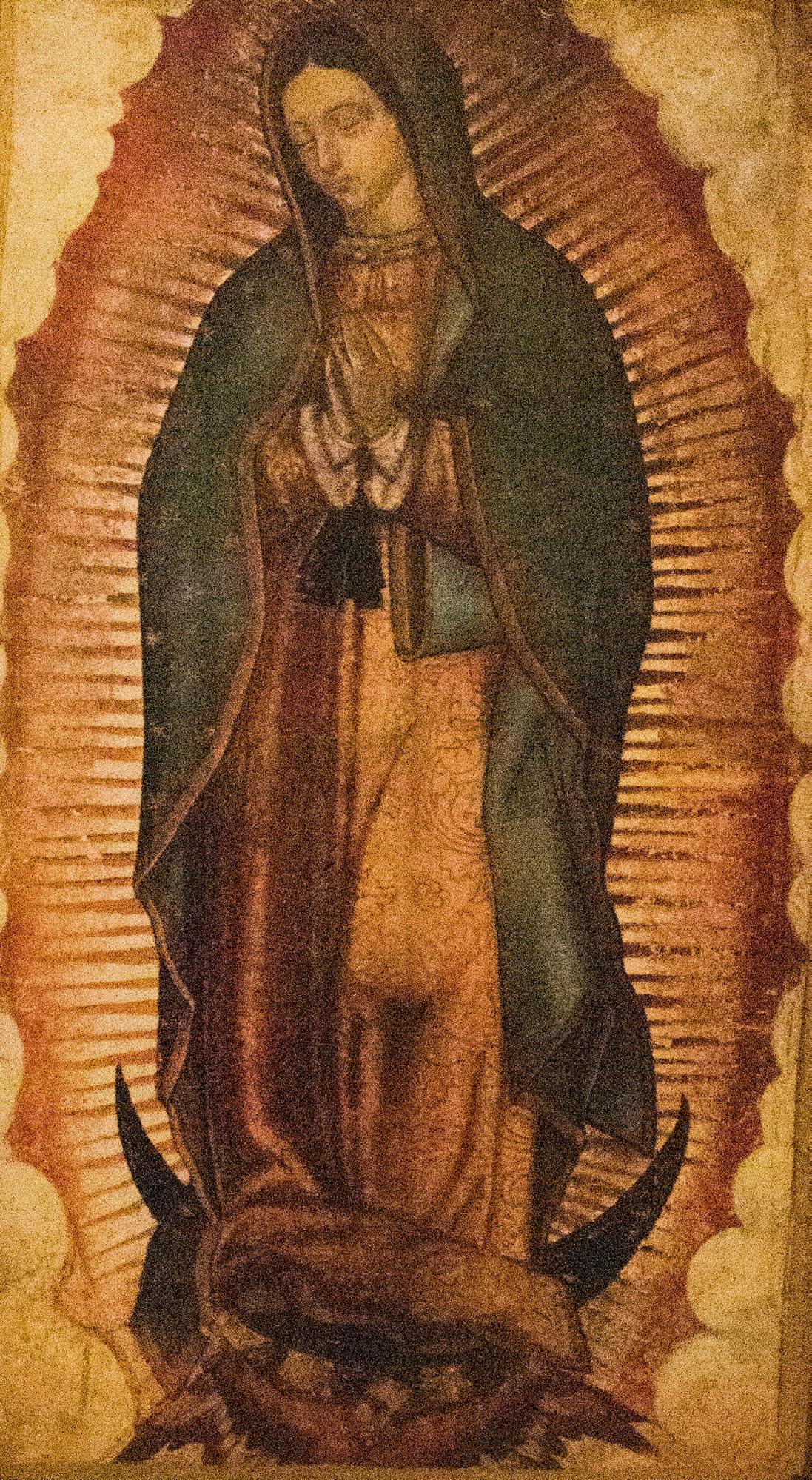
ACOMPÁÑENOS EN UNA
Procesión

Mariana

Aparición de la Virgen de Guadalupe
Sábado, 13 de diciembre
Horario: 8:00 AM - 10:00 AM
Lugar de inicio: El Centro Católico Lugar de llegada: Catedral de San Juan Berchmans (40 min caminando)
Únete a nuestra comunidad para celebrar juntos este día especial, en oración, cantos y unidad.
¡Ven a vivir esta experiencia de fe con nosotros! ¡ Trae tu rosario y a tu familia!
Habrá desayuno después y tamales a la venta Lo recaudado apoyará la colegiatura de los seminaristas
Para más info, contacte la oficina del Ministerio Multicultural 318-219-7265

se encuentra en el “sí” cómodo. Se encuentra en el “sí” costoso.
La obediencia prepara el alma como la disciplina prepara el cuerpo. No entrenas porque amas el ejercicio; entrenas porque amas la meta. Y nuestra meta no es el éxito terrenal — nuestra meta es el Cielo. Nuestro amor por Dios debe guiarnos a la obediencia, no a vivir según nuestras opiniones.
La Eucaristía — El Ancla de Nuestro Camino
La tercera palabra que seguía volviendo en mi oración fue Eucaristía. Y comprendí: el perdón sana mi pasado, la obediencia santifica mi presente, pero la Eucaristía asegura mi futuro. Si realmente creo que la Eucaristía es el Dios Vivo — Cuerpo, Sangre, Alma y Divinidad — ¿cómo puedo vivir como si fuera rutina? Preparar nuestra alma para la eternidad no es esperar la muerte — es elegir cómo vivir ahora. Cada Comunión es un anticipo de la vida eterna. Y, sin embargo, ¿cuántas veces lo recibo distraída, apresurada, sin preparación? Los santos hablaban
de vivir en un estado de preparación — no por miedo, sino por amor. No obsesionados con la muerte, sino conscientes de la eternidad. El Concilio Vaticano II, en Ecclesia de Eucharistia, afirma: “La Eucaristía contiene toda la riqueza espiritual de la Iglesia: Cristo mismo, nuestra Pascua y pan vivo.” (Ecclesia de Eucharistia, 1) El Sínodo de Obispos agrega: “La Eucaristía hace presente el sacerdocio de Cristo… renovando continuamente a la Iglesia.” (La Eucaristía: Fuente y Cumbre, 21) Somos la Iglesia. Lo que significa que necesitamos renovación constante. Yo necesito renovación. Tú necesitas renovación.
Cuando recibimos la Comunión distraídos o apresurados, perdemos el poder transformador que santifica nuestro presente y asegura nuestro futuro. Cada Misa se convierte en un ensayo general para el Cielo, un momento en que la gracia del sacramento nos moldea para ser más como Cristo.
Dios nos llama a vivir en libertad — libertad del rencor, siendo obedientes, para poder recibirlo plenamente. El perdón, la obediencia y la Eucaristía nos llevan a libertad, sanación y restauración. Te invito a hacer un autoexamen ahora mismo y escribir tus respuestas: ¿A quién necesito perdonar todavía? ¿Dónde me está pidiendo Dios obediencia? ¿Cómo me acerco a la Eucaristía?

Karla Alvarez es la directora del Ministerio Multicultural de la Diócesis de Shreveport.
Give a Gift of Hope
Each year, we serve over 2,600 people who come to us with a desperate need. For some, it’s rental assistance so their families don’t lose their homes. For others, it’s help with the immigration process as they navigate its complicated system. Sometimes, it’s caregivers in need of community, diapers, or both. They’re all looking for a physical need, but also the spiritual one of hope: hope that things will be better and more stable for them and their families.
Such was Kendra’s case, whom we served this fall. Working at a nursing home with a reliable schedule and income, she contracted COVID earlier this year and was forced to take unpaid sick leave for two weeks, per the home’s protocol. As is the case for most, losing half a month’s income created a serious struggle. Able to pay most of her bills, Kendra only lacked enough to pay her rent. Unsettled,
and unused to asking for help, she needed to ensure her housing wasn’t jeopardized. Kendra came to Catholic Charities for assistance and left with a rejuvenated spirit, ready to save for the next emergency and hopeful she could handle it if it came.
We are only able to change the lives of those like Kendra through our community’s support. This year, we are celebrating 15 years of service in North Louisiana and are thankful for our community’s continued support that has given hope to tens of thousands of lives.
Catholic Charities’ budget for the year is just over $1 million, and we expect roughly 60% of it will be covered by government and private grants. We rely on local businesses, churches, and community members to make up the other 40%; so, this year’s fundraising goal is $425,000.
As we kick off our annual fundraising campaign, please consider how you might help us meet our goal with a donation, today. You can use the QR code below to make your gift online or mail your gift to Catholic Charities at 902 Olive St. Shreveport, LA 71104. If giving by mail, please include “Hope” in the memo line of your check.
Thank you for 15 years of support!

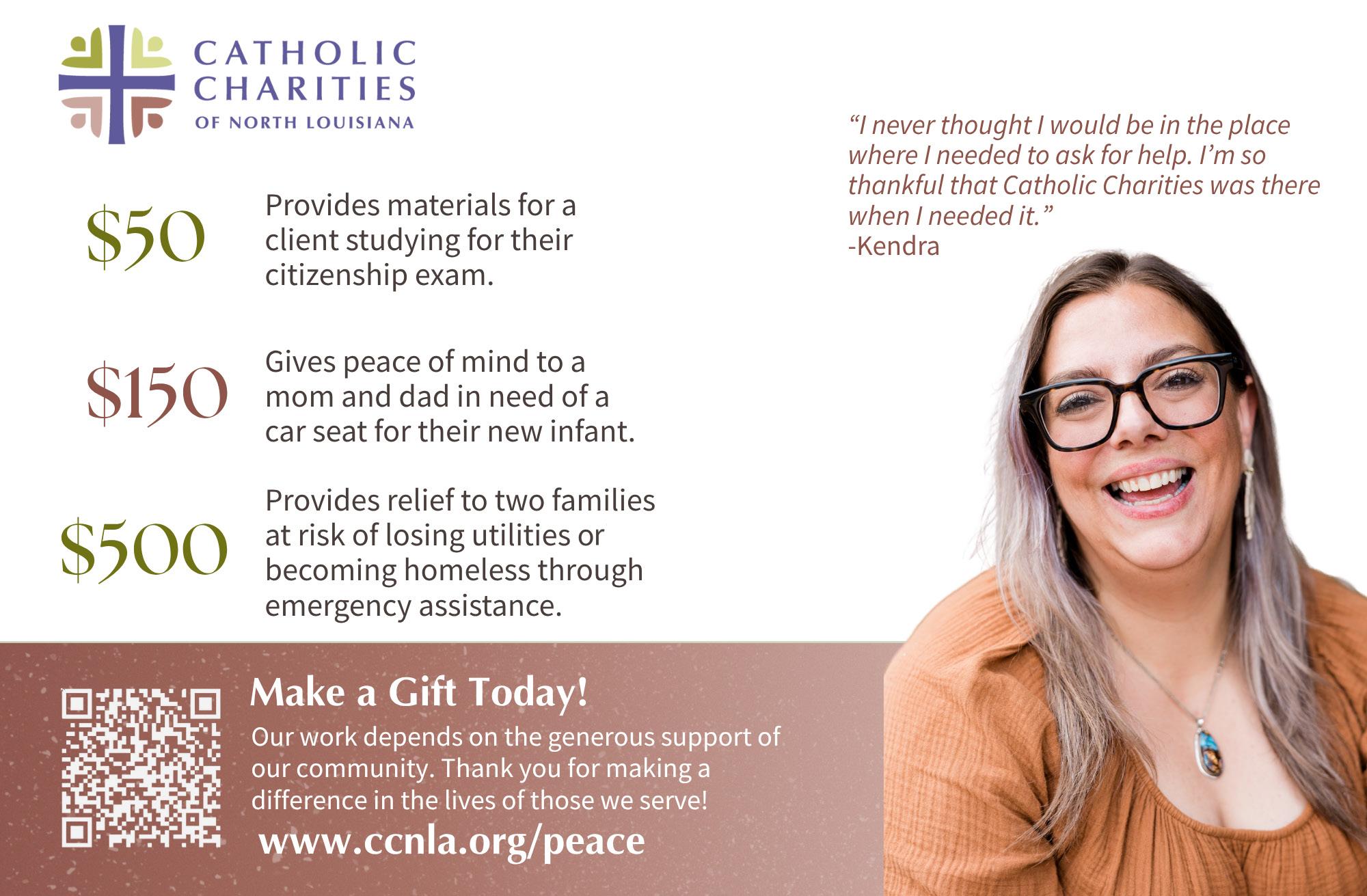
Shelby McCarty is the Development Manager at Catholic Charities of North Louisiana.

Seminarian Burses
Thanks to our Recent Donors:
(005) Cathedral of St. John Berchmans Burse #2
Lisa Marcalus
James & Donna Barnard (In memory of Mrs. Mary Ann Valiulis)
The Congregation of St. John's Roman Catholic Church (008) St. Jude Parish Burse
Anonymous (011) Rev. David Richter Burse #2
Anonymous (015) Bishop’s Seminarian Burse
Mr. and Mrs. Johnny B. Addison (022) Rev. Blane O'Neil, OFM Burse
Drs. Edward & Karen Jacobs (023) Msgr. Edmund J. Moore Burse #2
Mr. & Mrs. James E. McKeithen (030) Ottis and Anne Krupa Littlejohn Burse
Mr. & Mrs. Heinz H. Huester (039) St. Elizabeth Ann Seton Knights of Columbus Council 9260 Burse
Mr. & Mrs. Donald J. Nic i (049) Rev. Philip Michiels Burse
Mr. and Mrs. Robert McGowen (050) St. Joseph Shreveport Mary's Workers Burse #2
James & Donna Barnard (In memory of Mrs. Marie Voss)
NEW BURSE (063) Rev. Charles Glorioso Burse
Roslyn and Tom Mee
Incomplete Burses:
(001) Fr. Mike Bakowski Burse #2
($1450)
(002) Joseph & Antoinette Bakowski
Burse ($3250)
(003) Sam R. Maranto Burse ($1750)
(004) Kathryn Atherton Cook Burse ($450)
(005) Cathedral of St. John Berchmans Burse #2 ($776)
(007) Dr. Carol Christopher Burse ($1200)
(008) St. Jude Parish Burse ($9300)
(009) St. John Berchmans Knights of Columbus Council 10728 Burse ($1550)
(011) Rev. David Richter Burse #2 ($6950)
(015) Bishop’s Seminarian Burse ($5785)
(016) Elaine Malloy Frantz Burse ($1000)
(017) Msgr. George Martinez Knights of Columbus Council 1337 Burse #2 ($2004)
(018) Knights of St. Peter Claver Council 144 Burse ($1500)
(021) Rev. Edmund "Larry" Niehoff
Burse ($2350)
(022) Rev. Blane O'Neil, OFM Burse ($4500)
(023) Msgr. Edmund J. Moore Burse #2 ($3950)
(024) Rev. Joseph Puthupally Burse ($7500)
(025) Kathleen Hightower Burse ($800)
(027) Rev. Richard Lombard Burse #4 ($5000)
(028) Friends-n-Faith Burse ($750)
(029) Rev. Kenneth Williams Burse ($400)
(030) Ottis and Anne Krupa Littlejohn Burse ($9000)
(032) Madeline and Joe Tiller Burse ($8450)
(035) Dr. James V. & Rosemary C. Ward Burse #4 ($1970)
(036) Msgr. Earl Vincent Provenza Burse #6 ($3001)
(037) Manuel & Catherine Licciardi, and John & Beverly Miller Burse ($7000)
(038) The Malone Family Burse ($500)
(039) St. Elizabeth Ann Seton Knights of Columbus Council 9260 Burse ($800)
(045) Sister Martinette Rivers Burse ($555)
(046) Domestic Church Burse ($5000)
(047) Troops of St. George Burse ($6000)
(048) Rev. Joseph Kallookalam Burse ($5000)
(049) Rev. Philip Michiels Burse ($3200)
(050) St. Joseph Shreveport Mary's Workers Burse #2 ($335)
(052) Dr. Matthew Ragan Green, Jr. Burse ($1950)
(054) Fr. Franz Graef Burse ($2500)
(056) Hazel Iles and John Paul Woodley, Sr. Burse ($500)
(057) Father Robert Inzina Burse ($2500)
(058) Monsignor Warren T. Larroque Burse ($2500)
(059) ACTS of Northwest Louisiana Burse ($800)
(060) Father David Buss Burse ($2500)
(061) Sister Maria Smith, DC Burse ($2500)
(062) Joan E. Anderson Sneed Burse ($2000)
NEW BURSE (063) Rev. Charles Glorioso Burse ($2000)

To donate to an established seminarian burse, please scan here!

This month, women from five Shreveport parishes will support our seminarians and the Seminarian Burse program by hosting Vocations Bake Sales on November 22 and 23. What Mary’s Workers started many years ago at St. Joseph Church in Shreveport to raise money for seminarians’ Christmas gifts has grown to include parishes across
the Western Deanery. In 2023, their Bake Sale was so successful that the members voted to open a seminarian burse in addition to giving gifts to the seminarians. That first burse was completed last year – a second burse is now underway!
Participating parishes this year are Cathedral of St. John Berchmans; St.
Joseph, Shreveport (Mary’s Workers); Holy Trinity (Catholic Daughters of America); St. Elizabeth Ann Seton; and Mary, Queen of Peace. The bake sales will take place after every Mass throughout the weekend of November 22 and 23. Be sure to support our seminarians and enjoy some sweet treats!

Cathedral of St. John BerC hmanS CatholiC SC hool
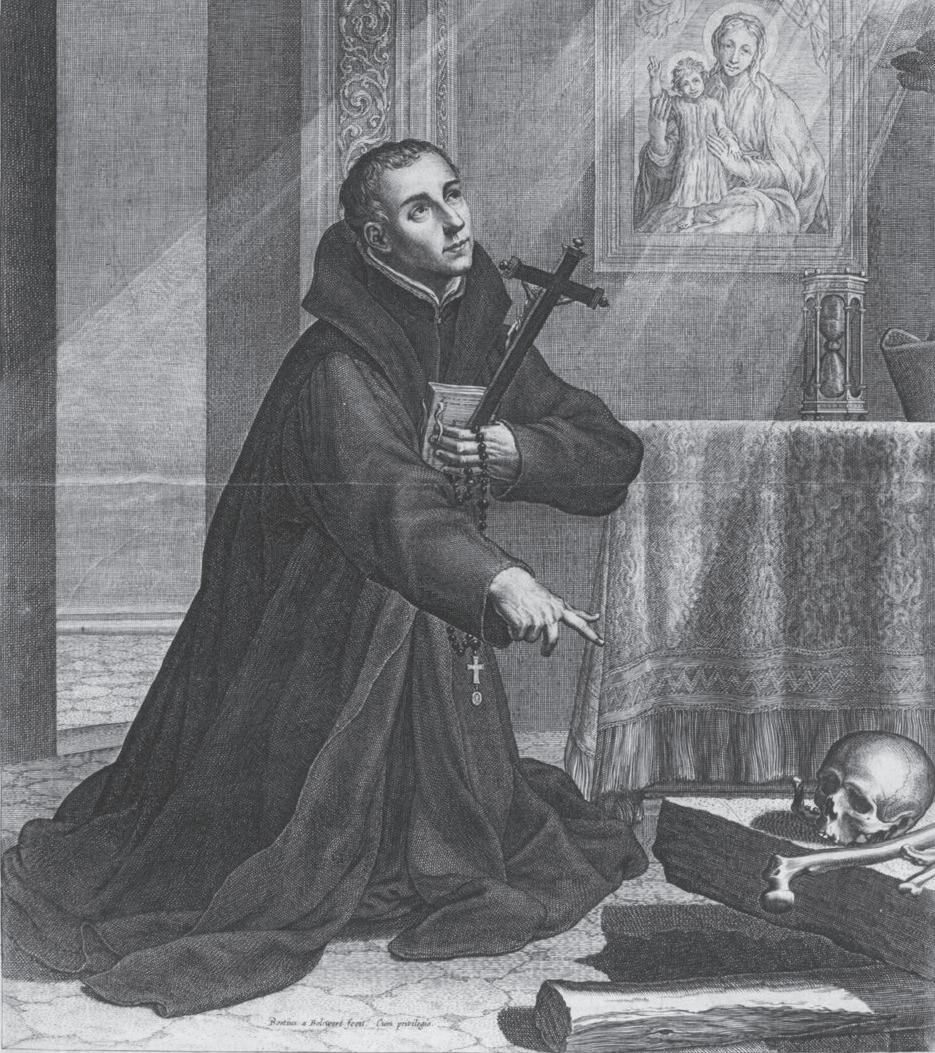
Attaining the Greatest Good
For most, dwelling on life’s end brings anxiety and sadness. Yet, such an attitude for a Christian presents a dichotomy: we believers understand that it is only through death that we can attain the greatest good, the Beatific Vision – God Himself. Still, although we recognize this as the only way to make the journey, concern about the end of life is natural.
It is sobering to think about judgment. We know by faith that upon our death we will each stand before God in particular judgment: the laying bare of all sin we chose to commit, then, for those in a state of grace, despite our sin, we’ll receive the mercy of a God who sacrificed all to save us from ourselves. The ugly truth is that all merit hell, but for those in a state of grace, God sees us as we are, sinful yet sorrowful, and has mercy because of His Son’s sacrifice. This is simultaneously
the saints’ greatest joy and the damned’s torment: to see God, in whom man finds the one thing that will bring him complete and total happiness, and then to either inherit or be denied this vision for all eternity. A beautiful, yet nauseating, thought.
The next question on our mind should be about the state of our soul – are we in a state of grace or have we turned away from God? It’s a question as old as Adam and Eve. Do we turn our hearts toward God seeking His will in our lives, or are we like our first parents who seek what is pleasing to the eye, good for food, and enhancing ourselves – the triple lust? As we approach the Advent season, which is a type of mini Lent, we have a great opportunity for self-examination and preparation for what is coming.
At this point we need a conversation about formation. So much of the world seeks satisfaction in the triple lust outlined above, and in seeking this prideful path, we struggle to turn away from worldly things and toward the eternal. At SJB, we strive to bring eternity to the forefront, placing this world’s temporal goods in their proper context. In studying scripture, the virtues, the lives of the saints, and our Church’s disciplines, we firmly root our students in an understanding of the True, the Good, and the Beautiful – in the eternal.
We don’t rise to the latest political movement or pop culture sensation – we aspire to be numbered among the saints who have gone before us in faith. We seek to inspire students to desire only God’s will; that they, in so doing, live every day with eternity in their minds, and thus have their soul in a state ready to meet with our Lord.
Pray and don’t worry. Seek the grace won for you by Christ by participating in the sacraments. Make only God’s will your focus! Through these disciplines, our souls will be ready to receive God’s grace and can trust in His mercy.
St. John Berchmans, pray for us!

T.C. Veit is the principal of St. John Berchmans Cathedral School in Shreveport, LA.
"Portrait of the Jesuit Jan Berchmans" c. 1621, Boetius Adams Bolswert Philidelphia Museum of Art

our lady of fatima CatholiC SC hool


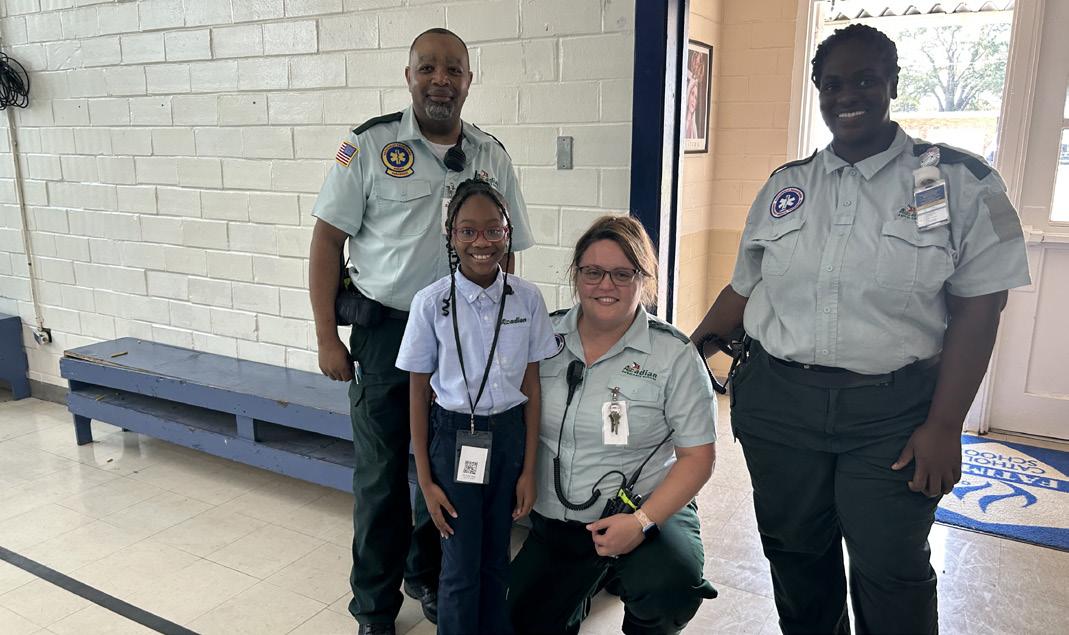

2025Freedom Week
Our Lady of Fatima School celebrated Freedom Week from September 15-19. We annually set aside the week after September 11th to remember our military, law enforcement, firefighter, and EMT personnel who we have lost, as well as those who still serve us.
Our week began with a talk about life in the military, from Retired Sergeant First Class U.S. Army Officer Greg Smith, a military recruiter for Louisiana, Texas and Mississippi. Our students wore camo to show their military spirit. To celebrate “Heroes Day” on Tuesday and show appreciation for everything area first responders do for us daily, our local Knights of Columbus helped us host lunch by grilling hamburgers for the community police, firefighters, and Acadian Ambulance Services. On Wednesday, we celebrated our history as a nation, dressing in clothes from our favorite decade. This day’s wonderful guest speaker was the Honorable Judge Aisha Clark from the Monroe City Court Division C, who blessed us with her story of becoming a judge and explained how our judicial system works. Thursday’s celebration included dressing in our best for Mass and enjoying a sweet treat of ice cream sandwiches in the afternoon. Our Lady of Fatima School finished the week with “Freedom Friday.” We wore red, white, and blue – the colors of Old Glory, our nation’s beautiful flag. We also discussed how many people have given their lives so that we can live free in our country.
While celebrating Freedom Week, our students learned many aspects of freedom, but most of all, they learned that freedom is not free unless it comes from our Savior Jesus Christ.

Jamie Humphrey is the Elementary Religion and Music teacher at Our Lady of Fatima Catholic School, Monroe, LA.

St. Jude day SC hool & mother'S day out

With the school year in full swing, the halls of St. Jude Day School and MDO echo with the sounds of little feet and lots of laughter. Its walls are covered with inspirational posters and children’s artwork, and in each classroom, you see times of play, precious moments of prayer, and many activities centered around our weekly theme.
Each week we gather excitedly for cherished chapel time with Deacon Steve and Music Director Ms. Gwen, learning about God’s love and singing songs of praise. Deacon Steve leads us in prayer and shares a bible story as Ms. Gwen brings it all to life through music. I love listening to the little voices singing “This little light of mine” and “Jesus Loves Me.”
We also love to celebrate special days. Grandparents' Day is an annual favorite, when we make sweet memories while sharing morning refreshments and handmade gifts and cards. The Family Life Center was filled this year with families full of pride as they gathered to show their love for their grandchildren. According to Pope Benedict XVI, grandparents “are a treasure which the younger generation should not be denied, especially when they bear witness to their faith.”
Johnny Appleseed Day is another day we enjoy celebrating. Children dress up, learn about kindness, and eat apples while wearing a pot on their head!
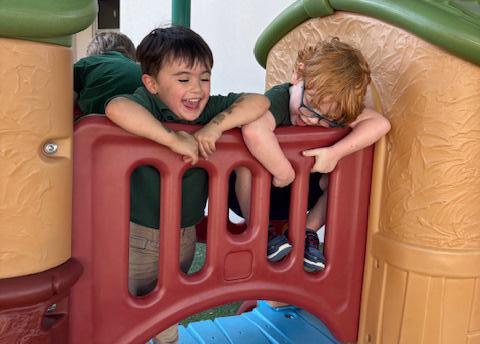
Of course, we cannot talk about our school without including the playground, where friendships are formed and scraped knees are bandaged. It is also where climbing, loud voices, and running feet are allowed!
As the year unfolds, we look forward to more engaging chapel time, fun activities, and more celebrations. Here at St. Jude Day School and MDO, we take every opportunity to grow in faith and virtue as we learn and play together.
“Let the little children come to me, and do not hinder them, for the kingdom of heaven belongs to such as these.” — Matthew 19:14
If you would like more information about St. Jude Day School and MDO, please contact: Amanda Chapa 318-7462508 ext. 201 or Sjds@stjudebossier.org
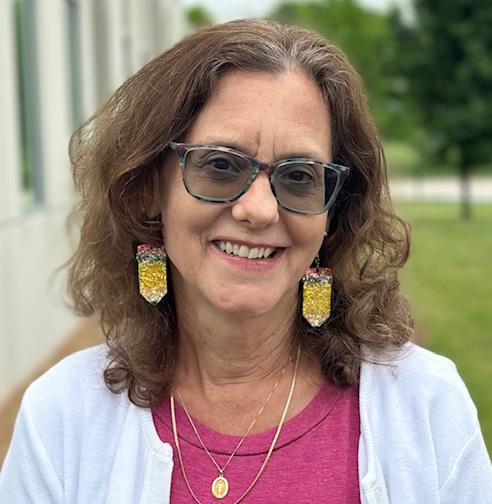
Sharon McCabe is the Pre-K 3 teacher at St. Jude Day School & Mother's Day Out.
Around the diocese...

On October 5, 2025 several members of St. Joseph’s Zwolle joined Father Keith Garvin in the Run for Resilience Ostomy 5K. He had supporters who joined him in Lafayette, back home in Zwolle, and simply wearing a supportive t-shirt for this event.
Our church members along with many others were there to show our support to anyone who has been or just started their new way of life in the Ostomy community. Listening to their testimonies really showed their faith and strength.
To learn more about Ostomy awareness visit the website Ostomy.org

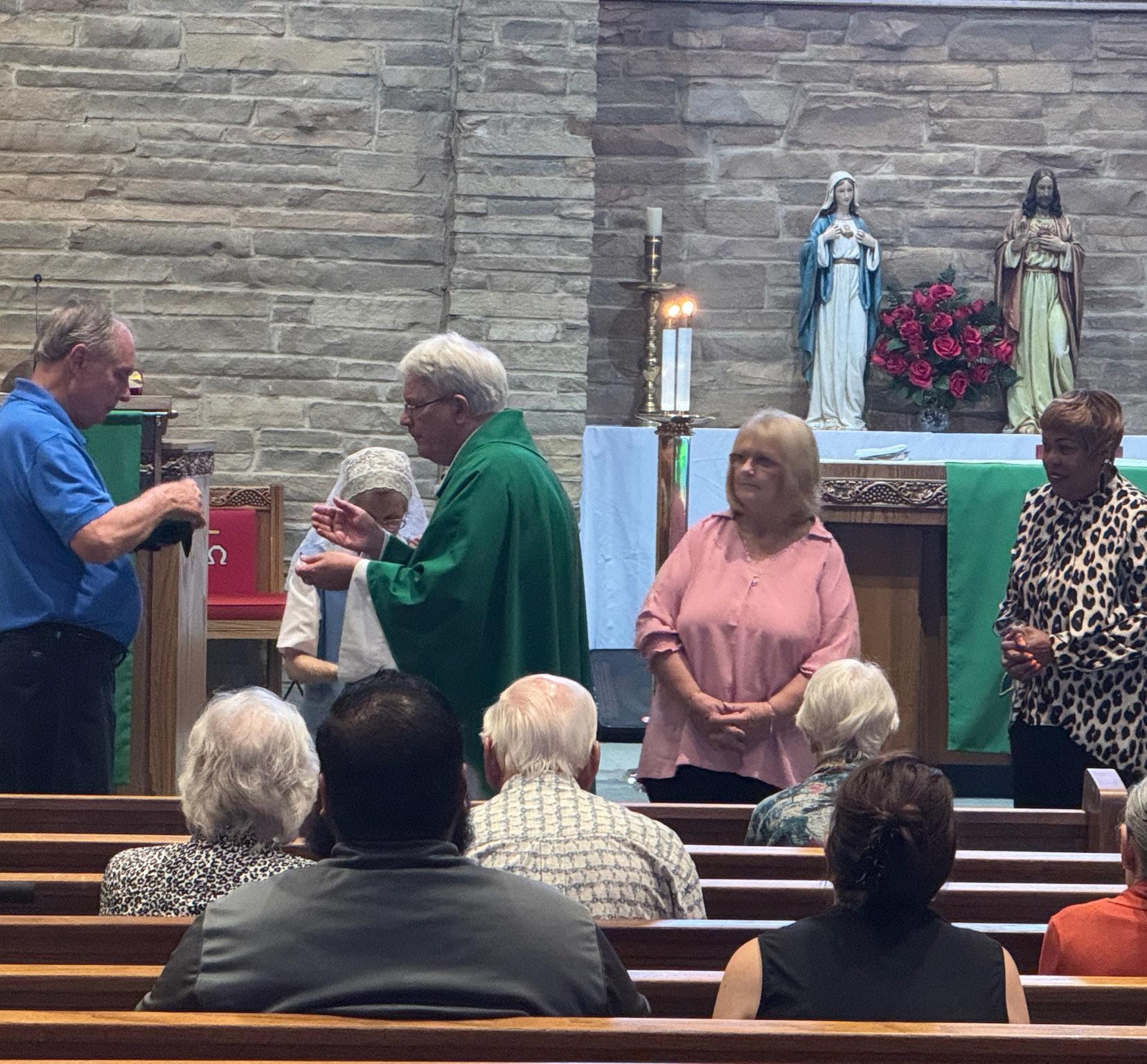
St. Vincent de Paul Conference President Richard Gust, of St. Mary of the Pines Catholic Church presented St. Vincent de Paul crucifixes to all of our dedicated Vincentians the weekend of Saturday, September 27th and Sunday, September 28, 2025. Sr. Susie Lea, Robin Parker and conference vice president Jean Woods, received their crucifixes with pastor Fr. Mark Watson's blessings on Sunday, September 28, 2025.

The presentation that Fr. Pike Thomas will offer as part of the Pilgrims of Hope Speaker Series has been postponed from Tuesday, October 7 to Tuesday, November 11 at 6 pm. The presentation entitled, "Dancing with the Trinity: Hope All Around" will take place in St. Mary of the Pines Church and will be followed by a reception in Vandegaer Hall. This will prove to be an inspiring and uplifting presentation. Please invite family and friends.

St. Mary of the Pines Conference Vincentians had great success during a recent Ministry Fair at their parish. Next up....welcoming the new Vincentians!
St. Mary of the Pines Conference had great success during a recent Ministry Fair at their parish. Next up... welcoming the new Vincentians!



CATHOLIC CONNECTION
DIOCESE OF SHREVEPORT
3500 Fairfield Ave. • Shreveport, LA 71104
Catholic Connection USPS 024-824 is published monthly except for July by the Diocese of Shreveport, 3500 Fairfield Ave., Shreveport, LA 71104. Periodicals Postage PAID at Shreveport, LA 71102. POSTMASTER: Send address changes to Catholic Connection, 3500 Fairfield Ave, Shreveport, LA 71104.

PHOTO OF THE MONTH: Bishop Francis Malone meets Flyer, Loyola College Prep's new live mascot, chaperoned by principal Dr. Laurie Salvail.
